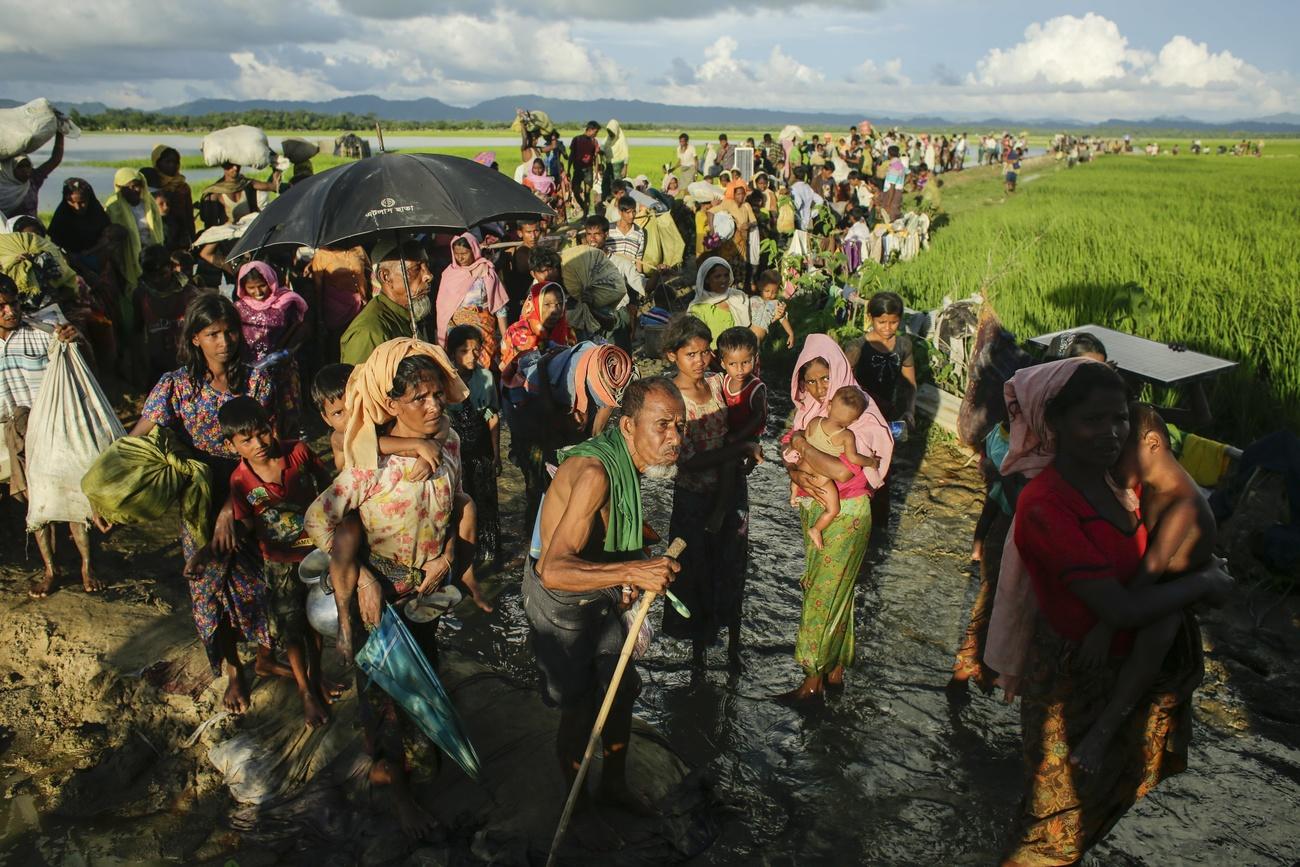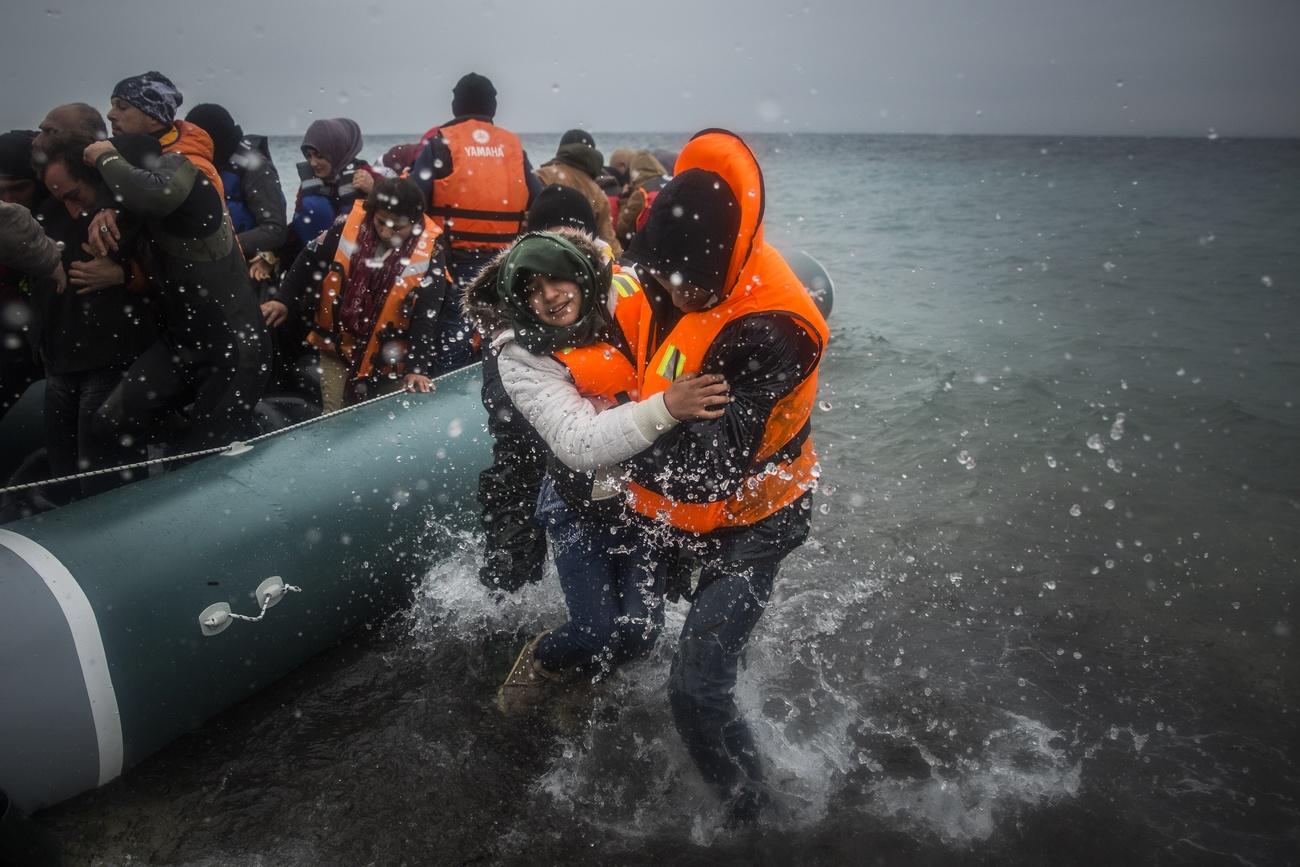
Switzerland pledges CHF125 million to UN refugee agency

The Swiss Federal Council (executive body) has pledged CHF125 million ($126 million) to the Geneva-based Office of the United Nations High Commissioner for Refugees (UNHCR) for the 2019–2022 period.
The multi-year support should enable the agency to respond rapidly to large population displacements, such as in Bangladesh in 2017 when more than 900,000 refugees from Myanmar arrived within a few months, the Swiss foreign ministry said in a statement on FridayExternal link.
Last year, over 21 million people benefited from UNHCR’s assistance and protection programmes worldwideExternal link. A total of 8.5 million people gained access to drinking water and 1.8 million refugee children were able to attend primary school, the Swiss foreign ministry added.
Switzerland’s partnership with the UNHCR is key to implementing its strategy linking international cooperation and national migration interests, it said.
Until 2018, Swiss contributions to UNHCR were made on an annual basis. The average value of Switzerland’s total humanitarian aid contributions to the UNHCR over the 2015-2018 period was CHF36.4 million per year.
Last year, Switzerland gave the agency CHF43 million, becoming its 14th-largest government donorExternal link. The United States, the European Union and Germany were the top three government donors in 2018. In addition, 31 members of the Swiss Humanitarian Aid Unit were seconded to UNHCR for civilian protection and water field missions.
The Swiss government makes additional ad hoc financial contributions to UNHCR depending on sudden or worsening humanitarian crises.
Since 2011, the Alpine nation has allocated over CHF42 million to support UNHCR’s activities for victims of the Syria crisis, including help for 5.6 million refugees in neighbouring countries and for 6.2 million people forced from their homes but still in Syria.

More
Has the UN lost the refugee debate in Europe?

In compliance with the JTI standards
More: SWI swissinfo.ch certified by the Journalism Trust Initiative




























You can find an overview of ongoing debates with our journalists here . Please join us!
If you want to start a conversation about a topic raised in this article or want to report factual errors, email us at english@swissinfo.ch.